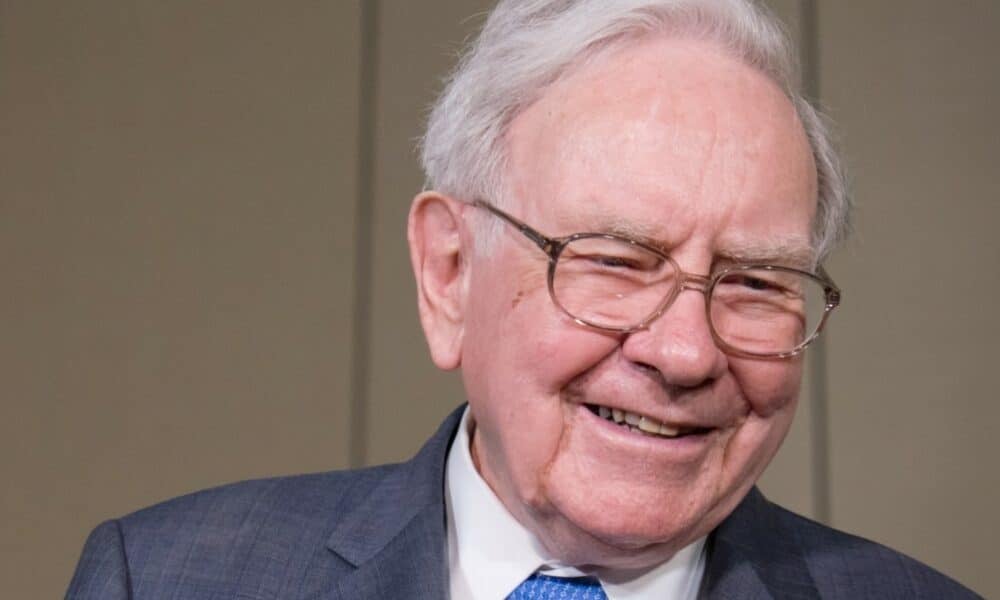Warren Buffett, one of the world’s wealthiest individuals, continues to captivate with his unassuming lifestyle. At 94, the billionaire CEO of Berkshire Hathaway boasts a net worth of $168 billion in 2025, yet he remains in the same Omaha, Nebraska, home he bought for $31,500 in 1958. While other tycoons splurge on extravagant estates, Buffett embraces a frugal existence he proudly calls “cheap,” valuing memories over material excess. In the first quarter of 2025, his wealth surged by $26 billion, per Bloomberg’s Billionaires Index, yet this windfall hasn’t swayed his commitment to simplicity.
The Omaha residence, featuring five bedrooms and two-and-a-half bathrooms, spans 6,570 square feet and dates back to 1921. Now valued at approximately $1.3 million, it’s a modest dwelling compared to the opulence Buffett could afford. With his current fortune, he could repurchase the property roughly 129,000 times. Speaking to CBS News, Buffett admitted his thrifty nature and emphasized he wouldn’t trade the house for anything, citing the joy of raising his three children—Susan, Howard, and Peter—within its walls.
This choice stands in stark contrast to many of his billionaire peers. While Buffett cherishes Nebraska’s calm, others like Bill Gates and Elon Musk opt for homes reflecting vastly different priorities. Gates resides in a sprawling Seattle mansion, while Musk, despite once touting a $50,000 Texas abode, recently bought a $35 million family compound. Buffett, famously seen driving a car with the license plate “THRIFTY,” embodies a rare blend of immense wealth and minimal spending.
Modest home amid a towering fortune
Buffett’s reputation as an investment genius is matched by his dedication to a low-key life. His Omaha home, nestled in a quiet residential area, lacks the grandeur of coastal estates or urban penthouses. Built over a century ago, the house offers a sturdy, functional design devoid of modern extravagance. Buffett has long praised its practicality, noting it meets all his needs despite overseeing a financial empire with stakes in giants like Coca-Cola and Apple.
Over the decades, the property’s value has climbed steadily, mirroring U.S. real estate trends. Omaha’s cost of living remains far below that of cities like New York or Miami, with average home prices hovering around $250,000. Even at $1.3 million, Buffett’s residence is an outlier locally but pales beside the multimillion-dollar homes his wealth could command. Analysts suggest its appreciation reflects both inflation and Omaha’s gradual growth, yet it remains a humble anchor for a man of his stature.
Emotion plays a key role in Buffett’s decision to stay. Having raised his family there, the house holds decades of personal history. He’s often spoken of its sentimental worth, a factor outweighing any lure of luxury. For Buffett, wealth is a tool for investment, not a ticket to lavish living, a mindset that’s fueled his ascent to one of the globe’s richest individuals.

Billionaires and their property preferences
Unlike Buffett, many ultra-wealthy figures chase homes that showcase their fortunes. Bill Gates, worth over $130 billion, occupies a 66,000-square-foot mansion in Medina, Washington, dubbed Xanadu 2.0. With seven bedrooms, 24 bathrooms, an indoor pool, and a trampoline room, it dwarfs Buffett’s home tenfold. Gates has expressed no intent to downsize, valuing the space for family visits despite living alone since his children moved out.
Elon Musk, the world’s richest person with a net worth exceeding $200 billion, offers a mixed narrative. He once claimed to reside in a $50,000 prefab house near SpaceX’s Texas headquarters. Yet recent reports reveal he purchased a $35 million Austin compound to accommodate his large family, including over a dozen children. His role in the Trump administration’s Department of Government Efficiency (DOGE) likely limits his time at either property.
Meanwhile, Florida’s “Billionaire’s Beach” draws figures like Donald Trump and Ken Griffin, where homes fetch up to $88 million. The sunny locale and lavish lifestyle starkly contrast Buffett’s Midwest retreat. These tycoons wield fortunes that make even the priciest purchases a mere fraction of their wealth, yet Buffett’s suburban steadfastness underscores his unique approach.
- Key influences on billionaire real estate choices:
- Location: Proximity to business hubs, climate, or peace.
- Lifestyle: Extravagance, seclusion, or simplicity.
- Family needs: Space for kids or personal comfort.
Why Buffett shuns extravagance
Buffett’s frugality isn’t just a quirk—it’s a philosophy. He’s long argued that money should serve a purpose, not fuel waste. This mindset has built a fortune few can rival, with Berkshire Hathaway’s market value topping $900 billion. His $26 billion gain in early 2025 highlights his investment prowess, yet he sees no need to splurge beyond the basics.
Omaha’s affordability aids his thriftiness. Home prices there lag far behind coastal hotspots, where luxury properties routinely exceed $10 million. Buffett could buy any estate globally without denting his wealth, but he channels funds into stocks and philanthropy instead. His pledge to donate most of his fortune, notably through the Giving Pledge, reinforces this focus on impact over indulgence.
Beyond housing, Buffett’s penny-pinching extends elsewhere. He once drove a Cadillac emblazoned with “THRIFTY,” a nod to his economical ethos. Even with a top-five ranking among global billionaires, he favors routine over extravagance, a trait that keeps him grounded amid staggering success.
Stark contrasts among the ultra-rich
While Buffett stays rooted in his 1958 purchase, others embrace excess. Jeff Bezos, Amazon’s founder, owns a $165 million Beverly Hills estate, the Warner Estate, once home to film mogul Jack Warner. Spanning 13 acres, it’s part of a portfolio including Florida and New York properties, reflecting a broad real estate strategy.
Mark Zuckerberg, Meta’s CEO, balances a $7 million Palo Alto home with over $100 million in Hawaiian land. These acquisitions signal a trend among the elite to amass diverse holdings, often for prestige or leisure. Buffett, however, shows no such inclination, sticking to his single, storied residence.
Here’s a numerical snapshot:
- Buffett: $1.3 million home, 6,570 square feet.
- Gates: Multimillion-dollar mansion, 66,000 square feet.
- Musk: $35 million compound, size undisclosed.
- Bezos: $165 million estate, 13 acres.
Omaha’s real estate landscape
Omaha, a city of about 500,000, offers a modest backdrop to Buffett’s life. Its median home price of $250,000 contrasts sharply with urban centers like San Francisco, where values soar past $1 million. Buffett’s $1.3 million property stands out locally, yet it’s a bargain compared to billionaire norms. The home’s 41-fold value increase since 1958 tracks broader market growth, fueled by inflation and regional development.
Staying in Omaha aligns with Buffett’s practical side. It hosts Berkshire Hathaway’s annual meeting, dubbed the “Woodstock of Capitalism,” drawing thousands yearly. Buffett’s active role in the event ties him to the city, blending personal history with professional legacy. The house’s location offers both convenience and a quiet escape from the financial world’s bustle.
Timeline of Buffett’s Omaha life
Key moments define Buffett’s tenure in his home:
- 1958: Bought the house for $31,500, began family life.
- 1960s: Raised children Susan, Howard, and Peter.
- 2006: Committed most of his wealth to philanthropy.
- 2025: Net worth hits $168 billion, home unchanged.
These milestones reveal a man balancing vast riches with a steady personal core. His refusal to relocate despite decades of financial growth underscores a rare consistency.
Legacy of simplicity in an extravagant era
At 94, Warren Buffett remains an anomaly among billionaires. While peers flaunt sprawling estates, he clings to a home fit for an upper-middle-class family. Valued at $1.3 million, it’s a speck in a sea of multimillion-dollar properties, yet it mirrors Buffett’s belief in substance over show.
This ethos shines in his investment strategy too. Known for backing reliable firms and shunning fads, Buffett’s approach has cemented his status atop wealth rankings. His $26 billion jump in 2025 proves frugality and financial triumph can coexist, freeing him to prioritize legacy over luxury.
The divide with other tycoons highlights wealth’s varied expressions. For Gates or Bezos, it means grand homes and bold purchases. For Buffett, it’s a means to an end, lived out in the same Omaha address for over six decades.

Warren Buffett, one of the world’s wealthiest individuals, continues to captivate with his unassuming lifestyle. At 94, the billionaire CEO of Berkshire Hathaway boasts a net worth of $168 billion in 2025, yet he remains in the same Omaha, Nebraska, home he bought for $31,500 in 1958. While other tycoons splurge on extravagant estates, Buffett embraces a frugal existence he proudly calls “cheap,” valuing memories over material excess. In the first quarter of 2025, his wealth surged by $26 billion, per Bloomberg’s Billionaires Index, yet this windfall hasn’t swayed his commitment to simplicity.
The Omaha residence, featuring five bedrooms and two-and-a-half bathrooms, spans 6,570 square feet and dates back to 1921. Now valued at approximately $1.3 million, it’s a modest dwelling compared to the opulence Buffett could afford. With his current fortune, he could repurchase the property roughly 129,000 times. Speaking to CBS News, Buffett admitted his thrifty nature and emphasized he wouldn’t trade the house for anything, citing the joy of raising his three children—Susan, Howard, and Peter—within its walls.
This choice stands in stark contrast to many of his billionaire peers. While Buffett cherishes Nebraska’s calm, others like Bill Gates and Elon Musk opt for homes reflecting vastly different priorities. Gates resides in a sprawling Seattle mansion, while Musk, despite once touting a $50,000 Texas abode, recently bought a $35 million family compound. Buffett, famously seen driving a car with the license plate “THRIFTY,” embodies a rare blend of immense wealth and minimal spending.
Modest home amid a towering fortune
Buffett’s reputation as an investment genius is matched by his dedication to a low-key life. His Omaha home, nestled in a quiet residential area, lacks the grandeur of coastal estates or urban penthouses. Built over a century ago, the house offers a sturdy, functional design devoid of modern extravagance. Buffett has long praised its practicality, noting it meets all his needs despite overseeing a financial empire with stakes in giants like Coca-Cola and Apple.
Over the decades, the property’s value has climbed steadily, mirroring U.S. real estate trends. Omaha’s cost of living remains far below that of cities like New York or Miami, with average home prices hovering around $250,000. Even at $1.3 million, Buffett’s residence is an outlier locally but pales beside the multimillion-dollar homes his wealth could command. Analysts suggest its appreciation reflects both inflation and Omaha’s gradual growth, yet it remains a humble anchor for a man of his stature.
Emotion plays a key role in Buffett’s decision to stay. Having raised his family there, the house holds decades of personal history. He’s often spoken of its sentimental worth, a factor outweighing any lure of luxury. For Buffett, wealth is a tool for investment, not a ticket to lavish living, a mindset that’s fueled his ascent to one of the globe’s richest individuals.

Billionaires and their property preferences
Unlike Buffett, many ultra-wealthy figures chase homes that showcase their fortunes. Bill Gates, worth over $130 billion, occupies a 66,000-square-foot mansion in Medina, Washington, dubbed Xanadu 2.0. With seven bedrooms, 24 bathrooms, an indoor pool, and a trampoline room, it dwarfs Buffett’s home tenfold. Gates has expressed no intent to downsize, valuing the space for family visits despite living alone since his children moved out.
Elon Musk, the world’s richest person with a net worth exceeding $200 billion, offers a mixed narrative. He once claimed to reside in a $50,000 prefab house near SpaceX’s Texas headquarters. Yet recent reports reveal he purchased a $35 million Austin compound to accommodate his large family, including over a dozen children. His role in the Trump administration’s Department of Government Efficiency (DOGE) likely limits his time at either property.
Meanwhile, Florida’s “Billionaire’s Beach” draws figures like Donald Trump and Ken Griffin, where homes fetch up to $88 million. The sunny locale and lavish lifestyle starkly contrast Buffett’s Midwest retreat. These tycoons wield fortunes that make even the priciest purchases a mere fraction of their wealth, yet Buffett’s suburban steadfastness underscores his unique approach.
- Key influences on billionaire real estate choices:
- Location: Proximity to business hubs, climate, or peace.
- Lifestyle: Extravagance, seclusion, or simplicity.
- Family needs: Space for kids or personal comfort.
Why Buffett shuns extravagance
Buffett’s frugality isn’t just a quirk—it’s a philosophy. He’s long argued that money should serve a purpose, not fuel waste. This mindset has built a fortune few can rival, with Berkshire Hathaway’s market value topping $900 billion. His $26 billion gain in early 2025 highlights his investment prowess, yet he sees no need to splurge beyond the basics.
Omaha’s affordability aids his thriftiness. Home prices there lag far behind coastal hotspots, where luxury properties routinely exceed $10 million. Buffett could buy any estate globally without denting his wealth, but he channels funds into stocks and philanthropy instead. His pledge to donate most of his fortune, notably through the Giving Pledge, reinforces this focus on impact over indulgence.
Beyond housing, Buffett’s penny-pinching extends elsewhere. He once drove a Cadillac emblazoned with “THRIFTY,” a nod to his economical ethos. Even with a top-five ranking among global billionaires, he favors routine over extravagance, a trait that keeps him grounded amid staggering success.
Stark contrasts among the ultra-rich
While Buffett stays rooted in his 1958 purchase, others embrace excess. Jeff Bezos, Amazon’s founder, owns a $165 million Beverly Hills estate, the Warner Estate, once home to film mogul Jack Warner. Spanning 13 acres, it’s part of a portfolio including Florida and New York properties, reflecting a broad real estate strategy.
Mark Zuckerberg, Meta’s CEO, balances a $7 million Palo Alto home with over $100 million in Hawaiian land. These acquisitions signal a trend among the elite to amass diverse holdings, often for prestige or leisure. Buffett, however, shows no such inclination, sticking to his single, storied residence.
Here’s a numerical snapshot:
- Buffett: $1.3 million home, 6,570 square feet.
- Gates: Multimillion-dollar mansion, 66,000 square feet.
- Musk: $35 million compound, size undisclosed.
- Bezos: $165 million estate, 13 acres.
Omaha’s real estate landscape
Omaha, a city of about 500,000, offers a modest backdrop to Buffett’s life. Its median home price of $250,000 contrasts sharply with urban centers like San Francisco, where values soar past $1 million. Buffett’s $1.3 million property stands out locally, yet it’s a bargain compared to billionaire norms. The home’s 41-fold value increase since 1958 tracks broader market growth, fueled by inflation and regional development.
Staying in Omaha aligns with Buffett’s practical side. It hosts Berkshire Hathaway’s annual meeting, dubbed the “Woodstock of Capitalism,” drawing thousands yearly. Buffett’s active role in the event ties him to the city, blending personal history with professional legacy. The house’s location offers both convenience and a quiet escape from the financial world’s bustle.
Timeline of Buffett’s Omaha life
Key moments define Buffett’s tenure in his home:
- 1958: Bought the house for $31,500, began family life.
- 1960s: Raised children Susan, Howard, and Peter.
- 2006: Committed most of his wealth to philanthropy.
- 2025: Net worth hits $168 billion, home unchanged.
These milestones reveal a man balancing vast riches with a steady personal core. His refusal to relocate despite decades of financial growth underscores a rare consistency.
Legacy of simplicity in an extravagant era
At 94, Warren Buffett remains an anomaly among billionaires. While peers flaunt sprawling estates, he clings to a home fit for an upper-middle-class family. Valued at $1.3 million, it’s a speck in a sea of multimillion-dollar properties, yet it mirrors Buffett’s belief in substance over show.
This ethos shines in his investment strategy too. Known for backing reliable firms and shunning fads, Buffett’s approach has cemented his status atop wealth rankings. His $26 billion jump in 2025 proves frugality and financial triumph can coexist, freeing him to prioritize legacy over luxury.
The divide with other tycoons highlights wealth’s varied expressions. For Gates or Bezos, it means grand homes and bold purchases. For Buffett, it’s a means to an end, lived out in the same Omaha address for over six decades.







